A vision for the future
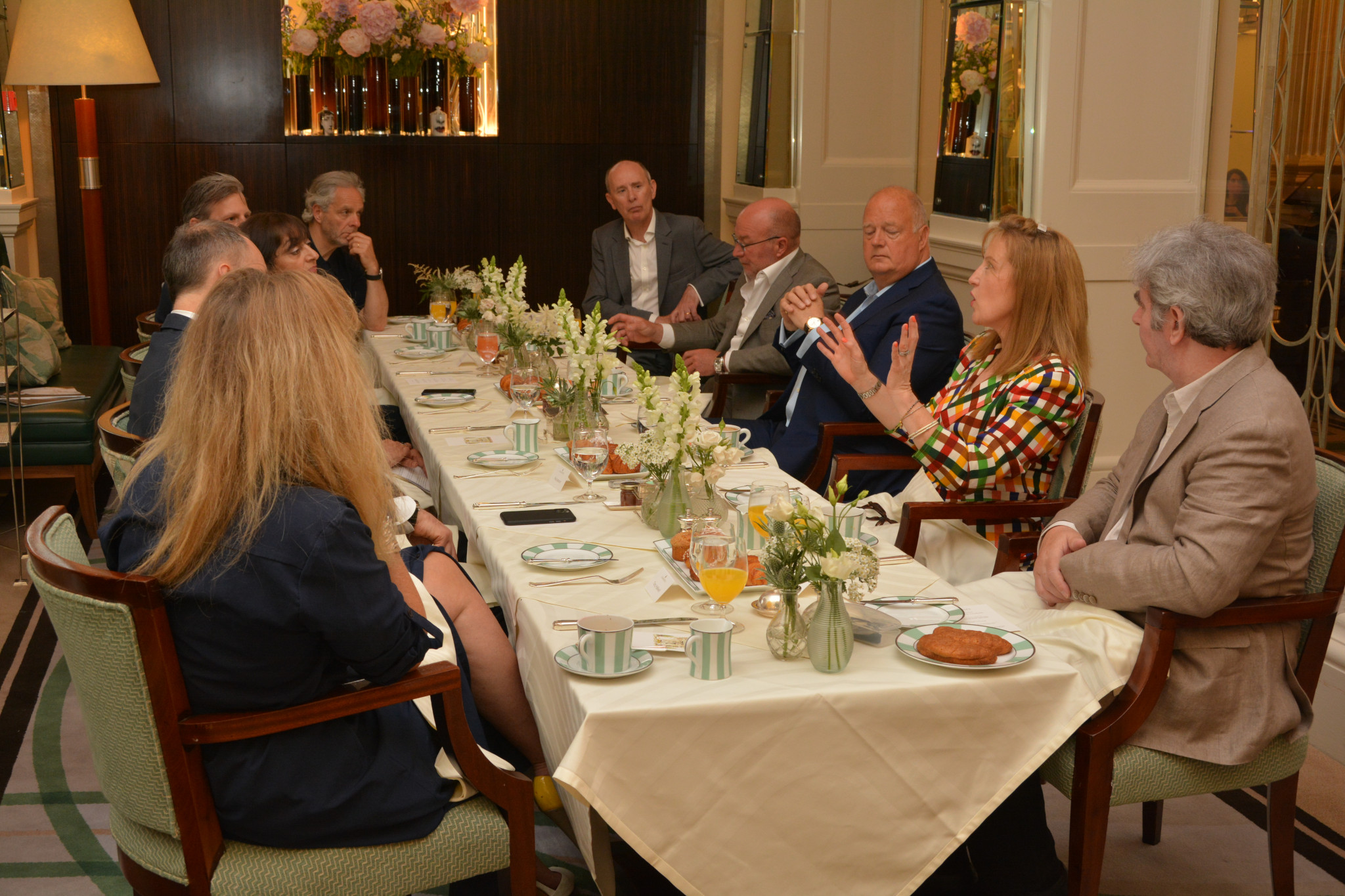
Mayfair Times recently brought together business leaders from various sectors for our “Future of Mayfair” roundtable discussion. The event, hosted by Claridge’s, looked at the challenges brought about by the pandemic and how Mayfair can retain its status as a “global oasis”
Words Selma Day
HOSPITALITY AND TOURISM
Paul
From my perspective, I’m looking at Claridge’s being benchmarked internationally and, therefore, London as a benchmark internationally. London is an exciting city and it competes well – it’s very attractive from an investment perspective and that’s why we’ve seen this significant growth in new hotels opening. Claridge’s has constantly challenged the status quo and is far more relevant and far more approachable now than it used to be. But you can’t be complacent – you have to continue to innovate. The other thing that I think is critical now is how we nurture people to come back into our business – it’s been very challenging because of Brexit and the pandemic. I think it’s very important that we continue to drive London as a destination collectively.
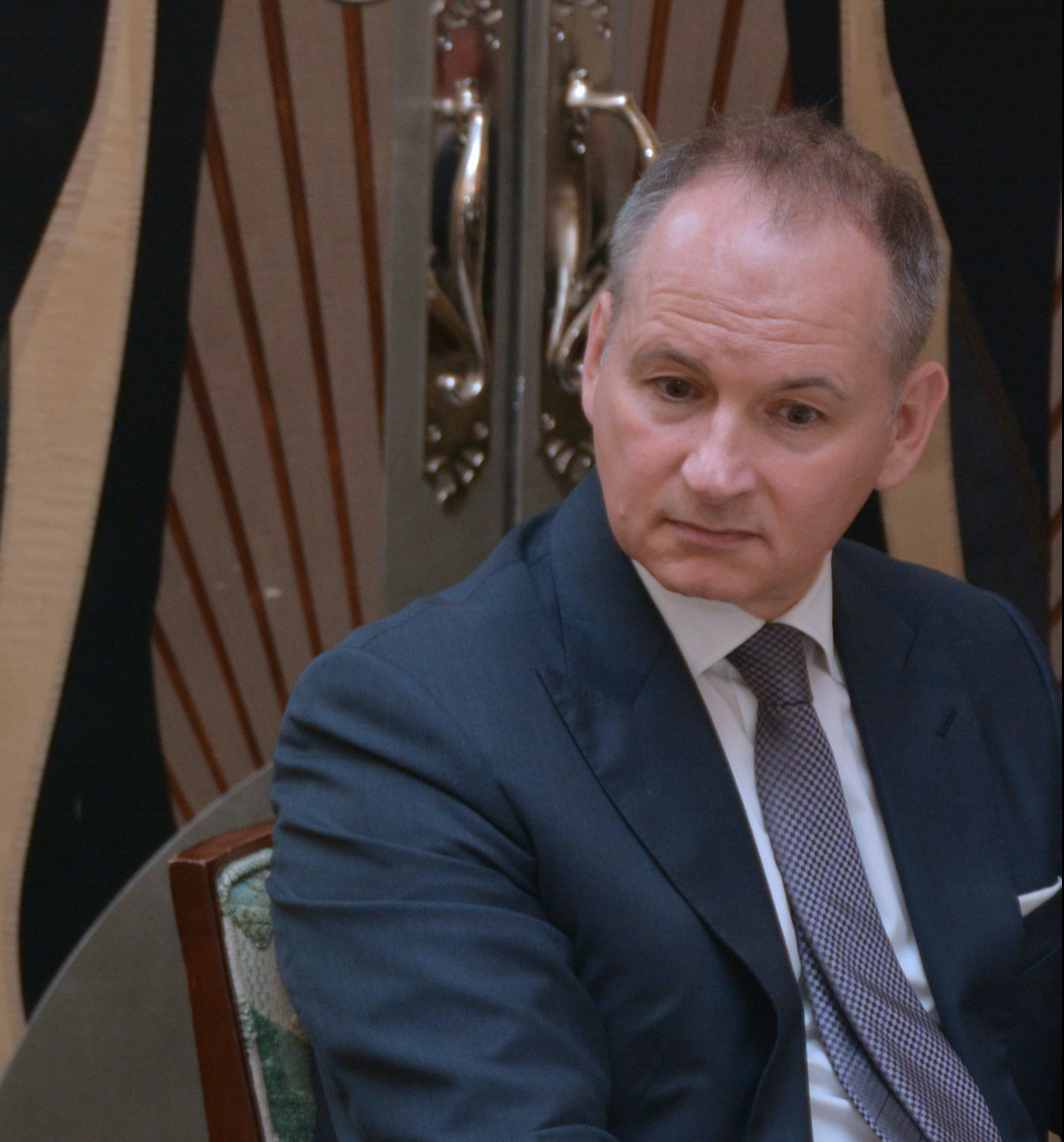
Tracy
I think in the future, people are not going to have as much inclination to travel – their companies are not going to send them on business, they are not going to have as many events so I think we are going to see a flight to quality. People will want to go to a top-end destination where you’ve got the culture, you’ve got the history, you’ve got the retail, you’ve got the business contacts, you’ve got the networking and London, as as a tier one city, will hopefully, come out of this better than tier-two cities. But we have to rethink how we present London to the world. We have to constantly reinvent ourselves to stay ahead of the game and think of reasons why people should still keep coming.
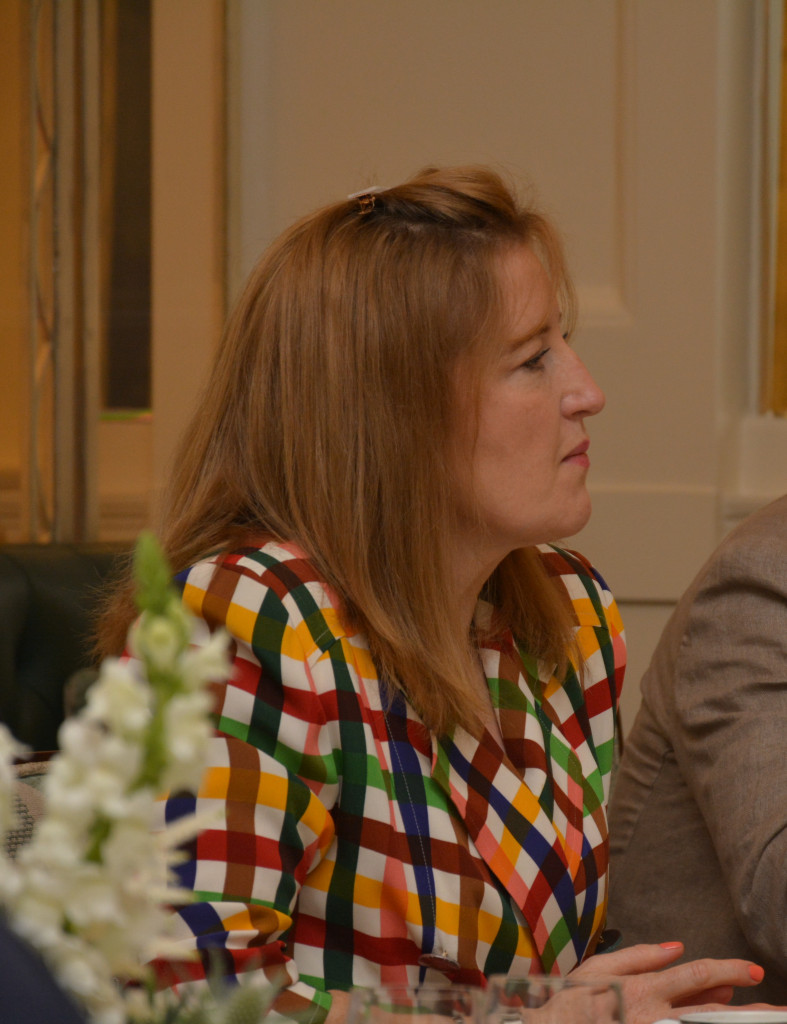
Helen
The decision to get rid of tax-free shopping by the Treasury was a backward step and I think the government has really underestimated the value of tourism to the UK economy. But fundamentally, it’s not about price – it’s about distinction, it’s about quality, it’s about an incredible experience. In a way, it’s an opportunity to really think about ourselves, about the country – taking joy in the extraordinary and uniquely diverse culture that we have in London – and, absolutely, that flight to quality. Once we appreciate that ourselves, that is a good foundation.
SUSTAINABILITY
Tracy
I think people have come out of the pandemic with a lot more of an eye on sustainability – carbon footprint is really key now and London will have to become a greener city.
LUXURY RETAIL
Helen
We’ve been talking about how e-commerce and digital work with physical retail for a long time, but if you really want to buy something special then you have to be there. So what can we do to make that physical space exceptional and make memories. Nobody forgets coming to Claridge’s – you come here and it just fills you with such joy that your positive feelings about it are always reinforced and you want to come back. And I think a store has to be like that and the very best ones are. You have to take all those elements of culture and experience that you would get in an incredible hotel or an incredible gallery and put it into the store. You don’t want a Starbucks-ification of luxury streets where you can go anywhere and there’s always a Vuitton, a Chanel or a Burberry – that’s just boring isn’t it? What is it about Bond Street that makes it really superb. So making that distinction is absolute key.
MAYFAIR'S MIXED USE
Harry
If we are looking at why people want to live, work and play in Mayfair, we have to adapt those uses accordingly and I completely agree with the importance of experience and of there being reasons to come to Mayfair. On the retail side, we [at Grosvenor] are adapting our policy to look at a broader experience, so we have done more on the hospitality and wellbeing side of things – so Dr Barbara Sturm [boutique and spa] coming to Mount Street is a different experience to having another retailer there, and Browns [in Brook Street] is another great example of how a retailer is evolving that experience as an offering with its restaurant Native – a retailer that has been incredibly successful online but is also placing importance on the physical presence.
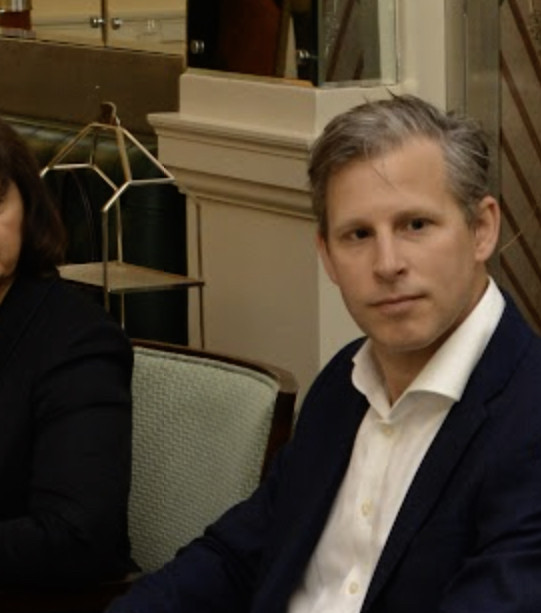
We’ve also got some large developments, for example, the South Molton Street Triangle scheme, which is bringing significantly more commercial space to the area. We are sitting in our commercial heart right here and it’s one of the leading office destinations in London but there is no question that competition is opening up and I think it’s very dangerous to be complacent about that. We are incredibly fortunate to have some world-renowned establishments like Claridge’s and some of the restaurants in Mayfair but a lot of them are at very high price points so we really want to introduce a greater spread of amenities at more affordable price points but that still have that quality, that sense of independence and a sense of something special.
Helen
Yes, you want the well-heeled but you also want a bit of a mix for that creative energy.
Peter
What you mustn’t forget are the residents – because the residents are the ones who bring the wealth here. We are a global oasis – people come here for all of the excellence. If you ask people what their views are on Mayfair with a clipboard, they don’t want to talk to you because they say, ‘look, we voted with our wallets. If we didn’t like it we wouldn’t be here. This is why we’ve taken our offices, which are some of the most expensive in the world, this is why we’ve bought an apartment in Grosvenor Square for £100 million” – and those people can walk out of their property and within five minutes walk to 70 per cent of the world’s brands. But these brands can’t afford to be there just for those residents.Those brands are here because we have 1.7 million visitors a year, because we have 80,000 office workers who are some of the highest paid and all of those people are buying their Christmas presents or wedding anniversary presents or whatever and luxury for the residents is that they are all on hand for when they want to use them.
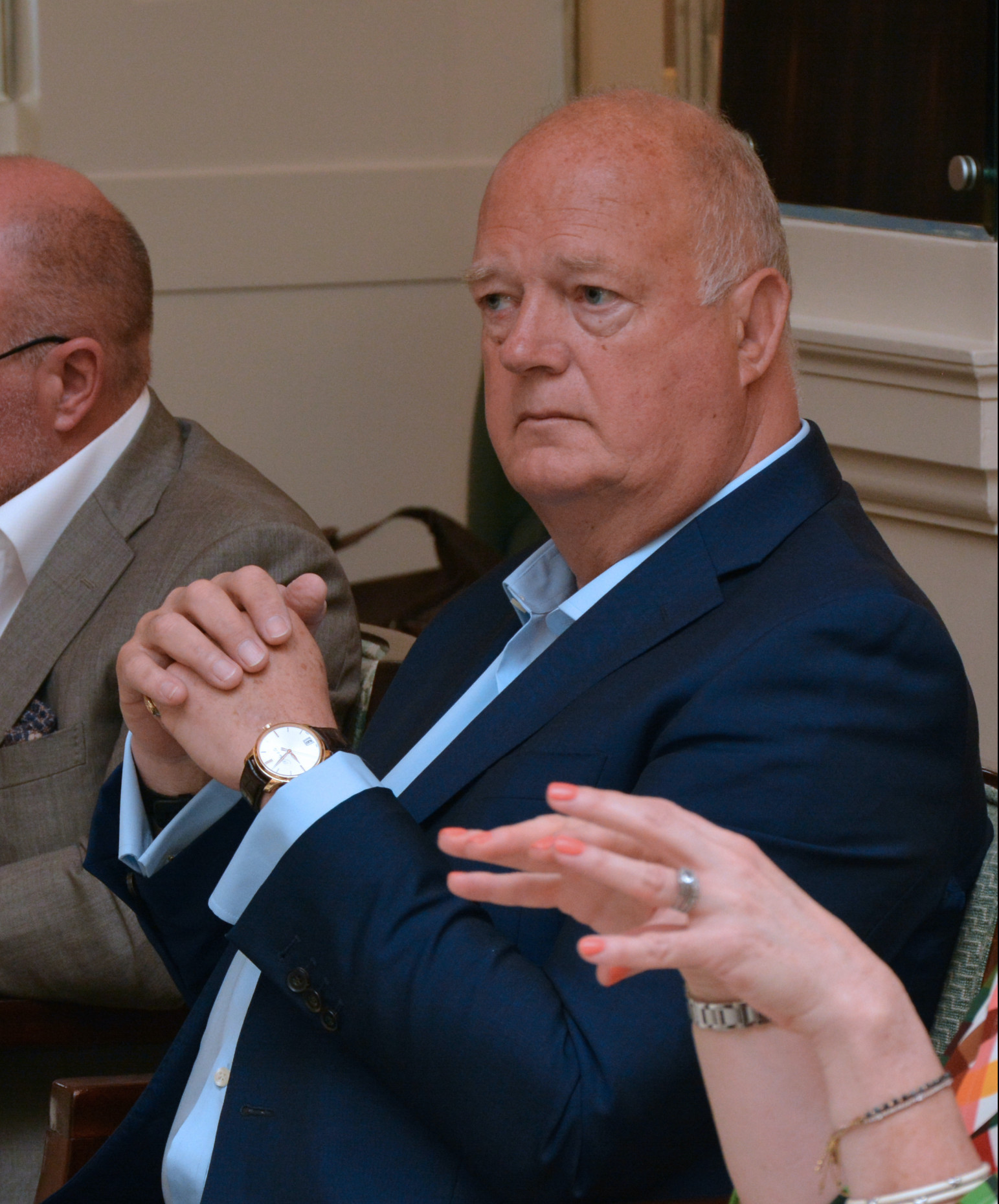
Harry
I look at it as an eco system and everybody plays their part in keeping the balance of that eco system. I do think the estates have a large part to play but I agree with you Peter that it’s a lot of the tenants that bring the creative ideas to Mayfair and we are very embracing of that. In fact, we are taking a different approach to the traditional landlord and tenant relationship where we want to be a partner – it’s very much a collaboration. We’ve just done that with Roland Mouret and JKS Restaurants for a new restaurant in North Audley Street.
COMMUNITY
David
Mayfair needs to be a village again – where you’ve got local, independent-run businesses that service everybody – and Grosvenor, Pollen – they are the curators as they are the ones who control most of the estate. I think you could have controlled rents to bring in local amenities like they do in other cities so you can have the independently-run grocery store. Like the art galleries are protected on Cork Street – they never hit full market rents. Like the tailors are protected on Savile Row. Savile Row is leading the way. What you’ve got now is a fabulous, cleaning repair valet service. You can get your shoes done beautifully, your clothes cleaned, repaired, anything you want, then next door you’ve got Service, which is a wonderful café. Savile Row has never had a café. It’s never had a dry cleaners. It’s never had a woman’s tailor before – you’ve now got The Deck.
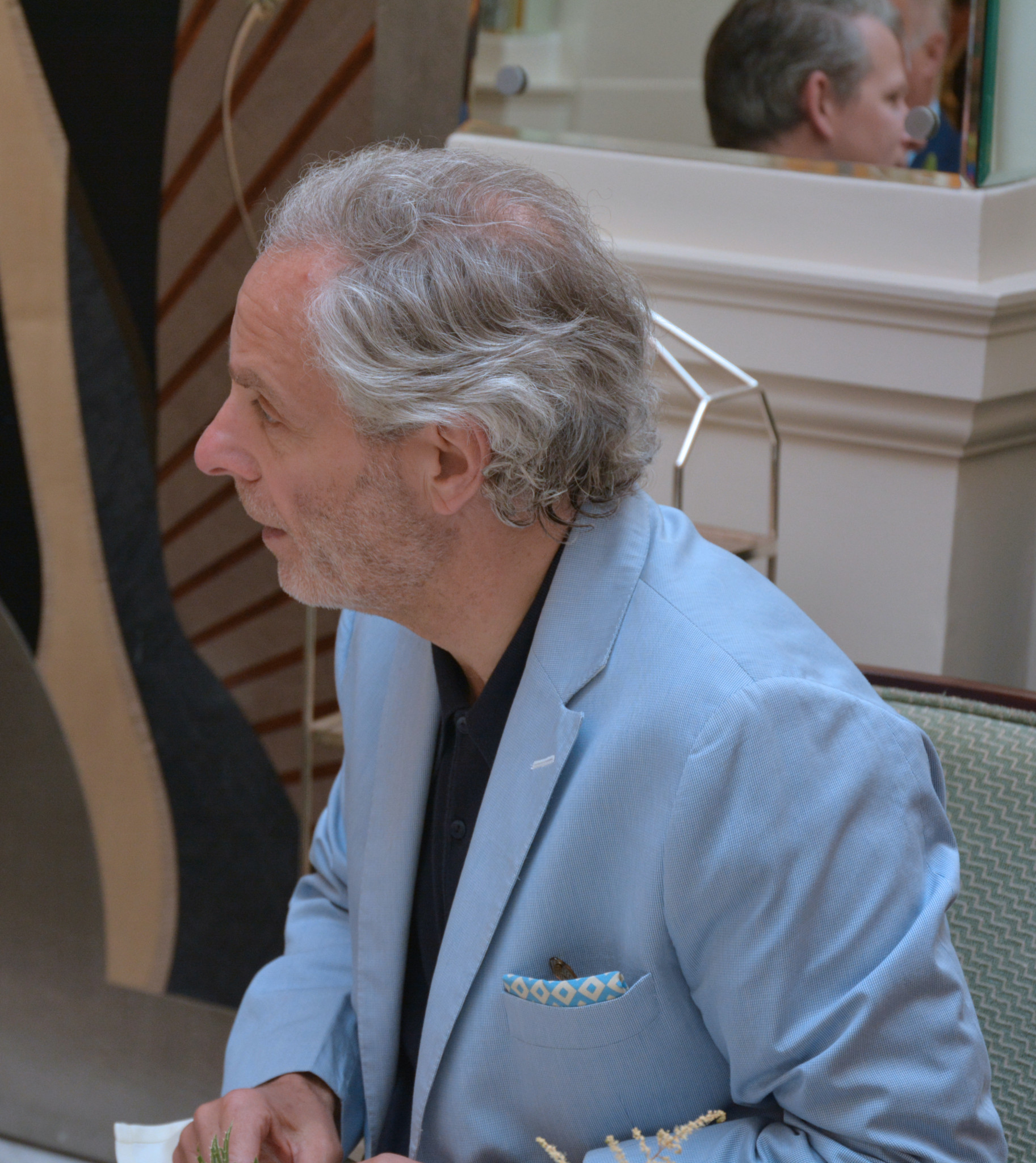
Peter
We are recreating a village feel in Mayfair. But I don’t think it is the estates that set the pace. I think it’s the people who’ve got vision, people who have got more money who are sinking millions of pounds into Mayfair. The estates are the gate keepers but they are not curators. It’s people like Bernard Arnault who have the vision.
PUBLIC REALM
Harry
I think the estates can do a lot to help deliver. In Grosvenor Street, one of the most prestigious offices addresses, there’s a great opportunity there to transform the arrival experience. And in North Audley Street we’ve seen how a temporary public realm scheme to assist outdoor dining has been received incredibly positively and has enhanced the look and feel of the place.
David
Public realm on my side of Mayfair has just been phenomenal – I mean you sit outside Cecconi’s and you feel like you’re in Milan. It’s fabulous. The paving, the commitment to that has been terrific and I’d like to see more of that – I’d love to see beautiful trees up and down Savile Row. And Hanover Square will be the premier square. Pace have chosen to go there [on the former site of BlainSouthern] because of the public realm and the whole energy of Hanover Square which will run down St George Street.
Paul
For us, it’s not just about the hotel, it’s also about the public realm. Certainly the Tadao Ando outside the Connaught was a catalyst for the development of Mount Street.
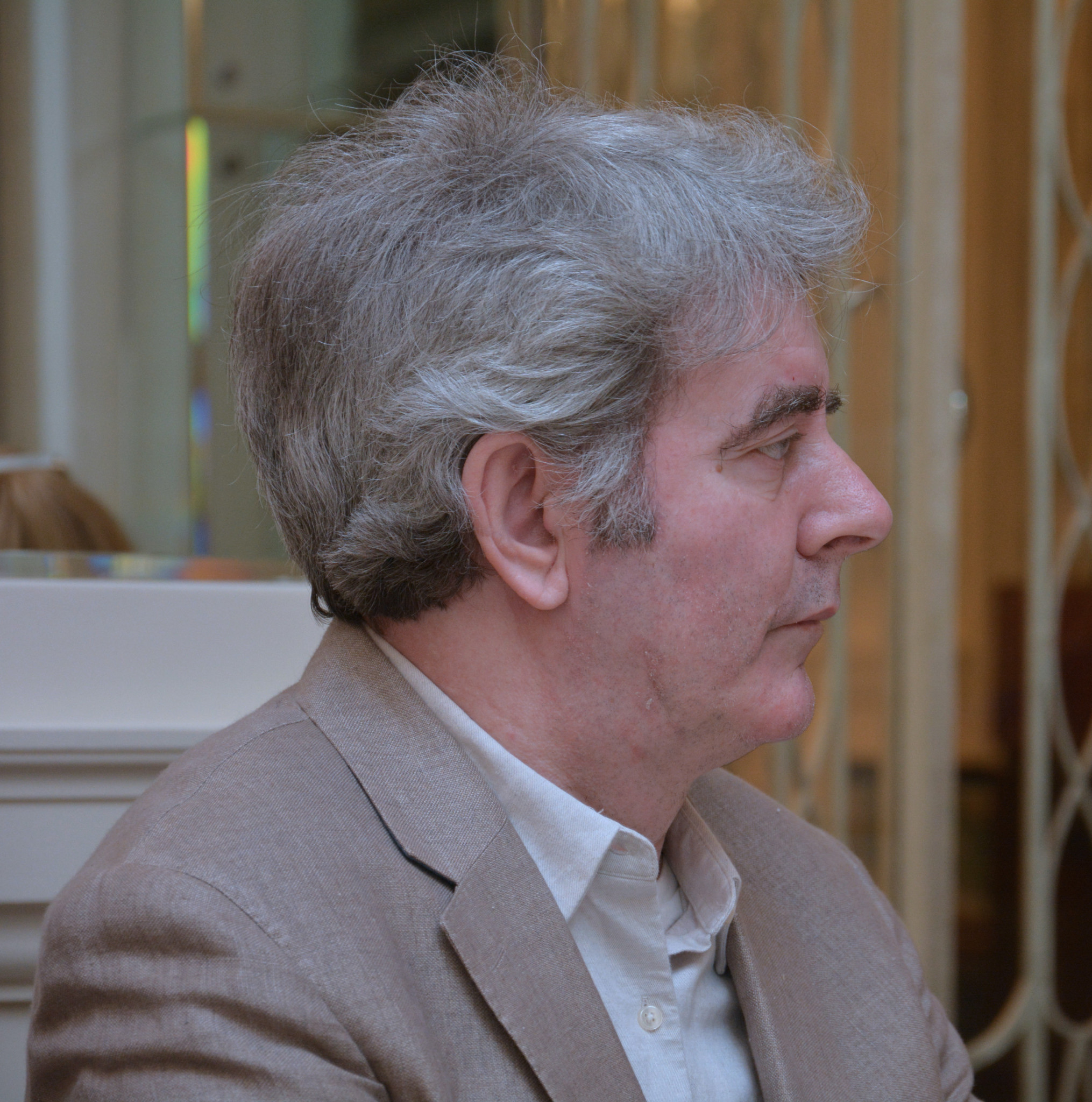
Liam
I think there is a stunning opportunity in Park Lane. My idea is to pedestrianise the Mayfair side of Park Lane to have about 1,000 metres of outdoor hospitality – it could happen in a couple of weeks. On the east side of Mayfair you have Regent Street which is great for pedestrians, for shopping etc. but on the west side of Mayfair you should have an experience as good or better than Regent Street – there’s no reason why not. On the park side on what’s called East Carriage Drive you’d have two-way traffic – it could be a really elegant avenue like Constitution Hill alongside Green Park or The Mall. At the moment, it’s just a disaster and has been since the Sixties. It was really badly planned so I think by putting back two-way traffic on the park side you can remove all traffic from the Mayfair side and have a fantastic, tree-lined, west-facing avenue.
Peter
I think it’s visionary and also links in with the Marble Arch proposal which is to change the traffic flow around Marble Arch, which will then sit in its own square – the same size as Trafalgar Square – and it could link up with Liam’s proposal. It’s not a proposal that’s going to cost millions of pounds – likewise the Marble Arch proposal. It’s one of those sorts of things that if you did it somebody would say, ‘why didn’t I think of that?'
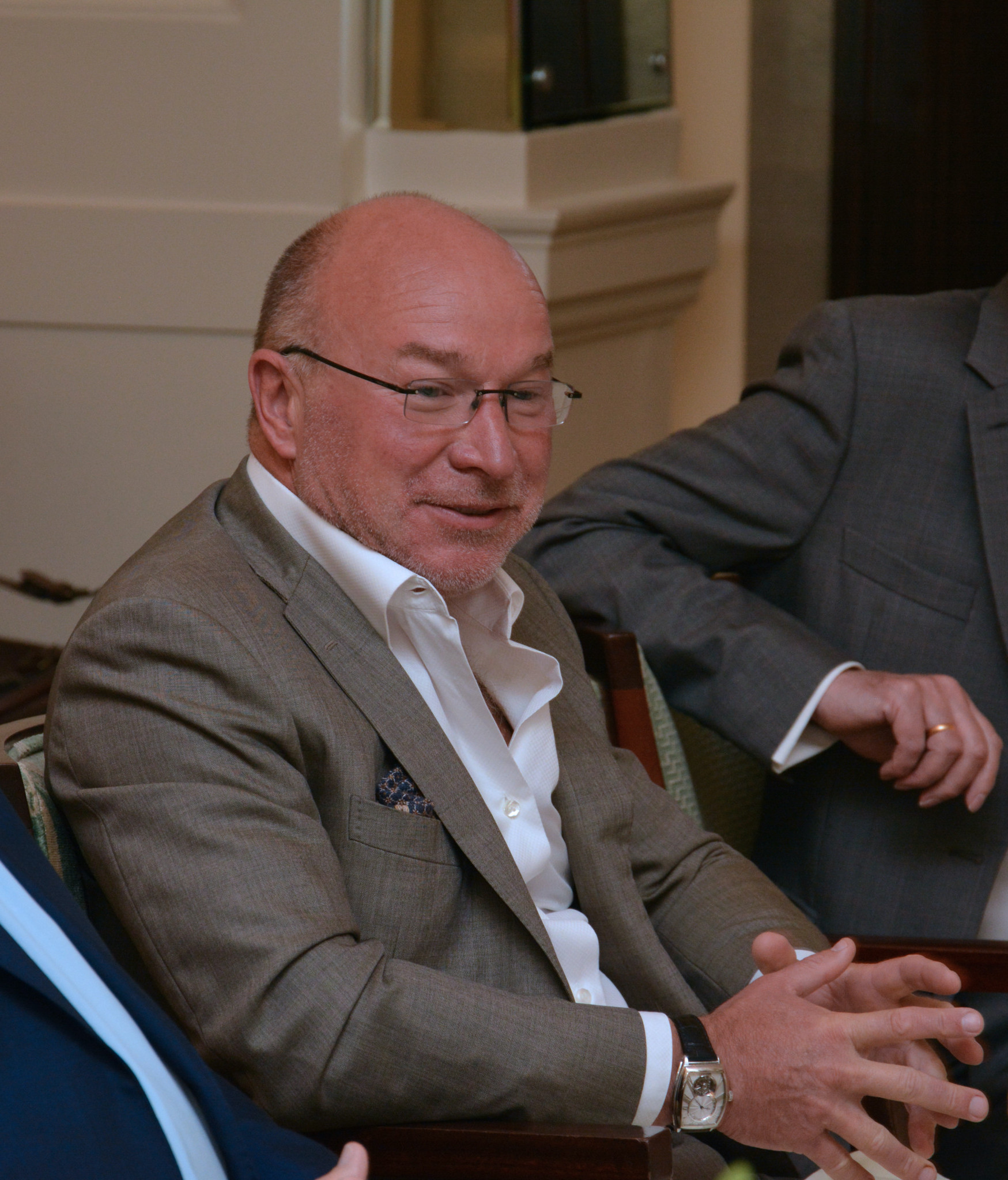
TECHNOLOGY
Konstantin
Technology is central to progress across all facets of life. Taking just Mayfair, we at London Technology Club see its impact every day in property, mobility, luxury, hospitality and wellness. To accelerate progress, private capital is a key force multiplier for entrepreneurs' good ideas and companies to scale their solutions. So in Mayfair you have both technology being applied in how we live, work, travel and connect plus the key investors and decision-makers with the ability to finance change. So for me, Mayfair is a great place to see technology be implemented as well as the place to source the best opportunities for mass-market proliferation.We’ve seen those in Mayfair wanting to know more about embracing and investing in technology.We hope we can make some sort of positive impact in Mayfair over the next ten years for those living, working and socialising here.
I strongly believe that to attract young talent, it’s not just enough to be a village – I’m not saying it’s not important – it’s just not enough. What young people need first is education, infrastructure, ecology, to be more greener, to be more convenient. The future of Mayfair is improving infrastructure, to have more facilities and different kinds of vehicles but we need to have dedicated lanes for these new vehicles. Look what’s happening with Boris with scooters – it’s a disaster. It’s dangerous, there’s not enough control. So we should be thinking how to improve the transport and infrastructure in this modern world.
Helen
During the pandemic luxury brands have really accelerated not just their e-commerce but the way they talk to people online.There are exciting things happening on social media and, of course, that connects with a much younger audience.
OFFICES
Harry
In Mayfair, the floorspace of offices is so much smaller than in the City or Canary Wharf and I can’t see that reducing but I think there will be a change. I think we will see some technology companies come out with bold statements saying they would be happy if their employees didn’t come in but I can’t see that working. If businesses want to impart their DNA, their culture onto their employees, it’s impossible to do remotely. You have to have that human connection. I think people who’ve got a long day of emails to get through will say they can do that just as well at home as they can in the office but they will want to come to the office to arrange meetings and discuss and collaborate with people.
Helen
I think there is a generational challenge there. What I see across the board and across our brands is that young people don’t want to come in and that’s not necessarily for any other reason than they can get a nice house further out of town. I think we have to start looking at office space – no matter how cool and trendy those collaborative spaces are, why don’t we bring more residential into the centre of town at a price people can afford? You can’t build a village if you are only there to work.
Peter
You can’t do it. If you say you are going to turn offices to residential Westminster City Council is going to say no. As part of Great Portland Estates’ development in Hanover Square, they had to build six flats on the corner of Bond Street and Brook Street – all with access to outside space. When we launched them, within one week, we sold all six at full asking price and that’s because there is no availability. The reason no one lives on Bond Street is there is nowhere to buy. Over 50 per cent of Mayfair properties are in the rental sector. With Stamp Duty as high as it is now you can’t purchase something unless you are going to be making a generational decision – you’re buying for 20 years. It makes you wonder who in the Treasury has a brain. It just doesn’t make sense.
INVESTMENT
Peter
If you look at all the investment going into Mayfair, Mayfair is now back on top and regaining its crown – we did lose it to Knightsbridge. Knightsbridge became the most expensive area in London because they built what the international market wanted [One Hyde Park] but in my opinion they built it in the wrong place. Now we have these super seven-star buildings in Grosvenor Square, Piccadilly and Hanover Square that people want and also in the location they want and what you’ve got is people who are putting money into the area for the next generation.
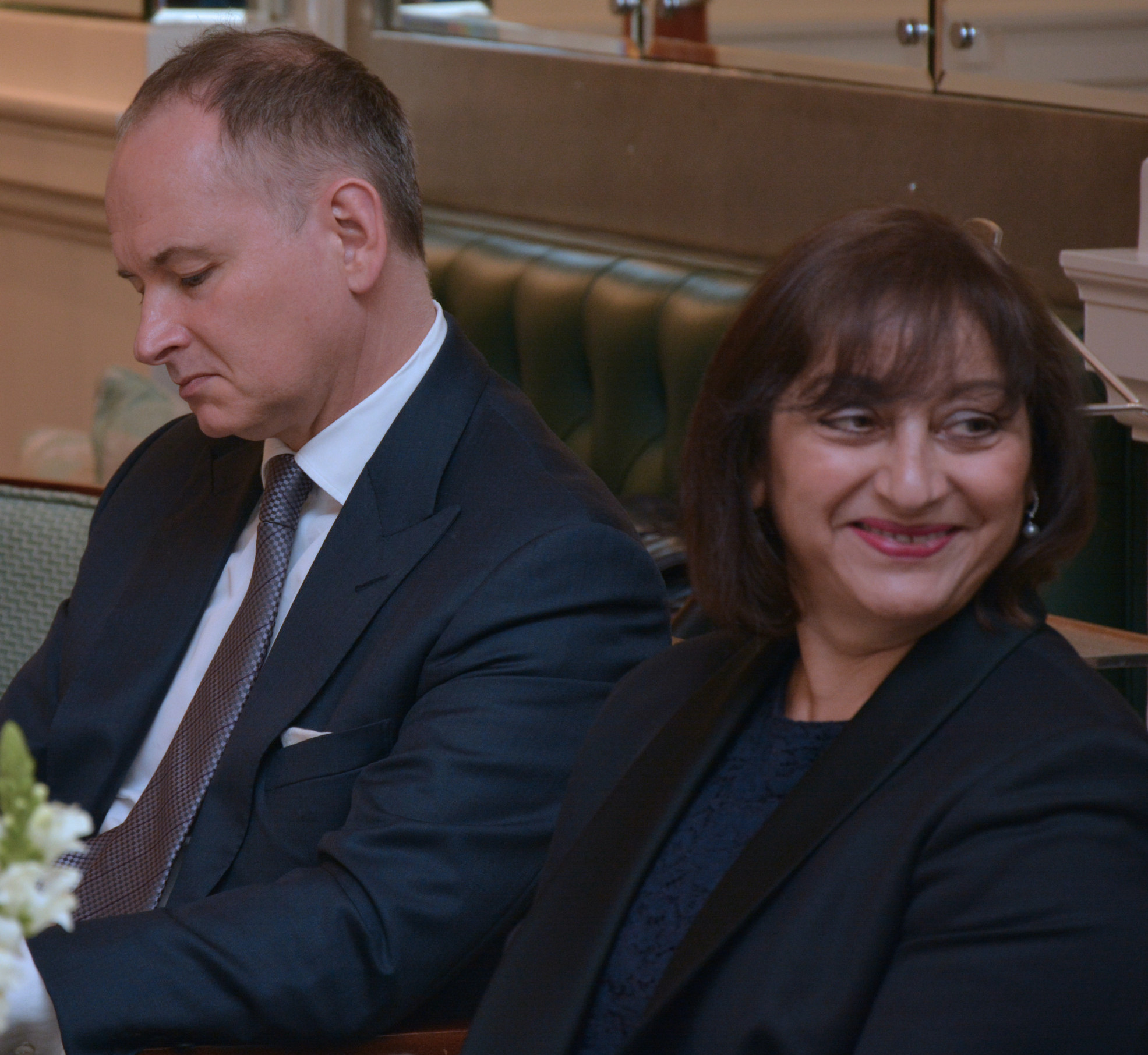
David
I don’t think we lost it. I think Knightsbridge was bling and Mayfair was cool. If you look at the people now people coming into Mayfair, the retailers, art galleries – they never wanted to be in Knightsbridge. Gagosian was the first of the heavyweights coming into London – in Heddon Street. That was the start around 20 years ago. They could have gone anywhere but wanted to be Mayfair. And it’s exciting times ahead – you’re now getting that next generation. Art is underpinning it culturally. Pace, the oldest of all the galleries in New York, going into 4 Hanover Square is a big commitment. Then you’ve got the Goodman Gallery from South Africa making a commitment to come to Cork Street.
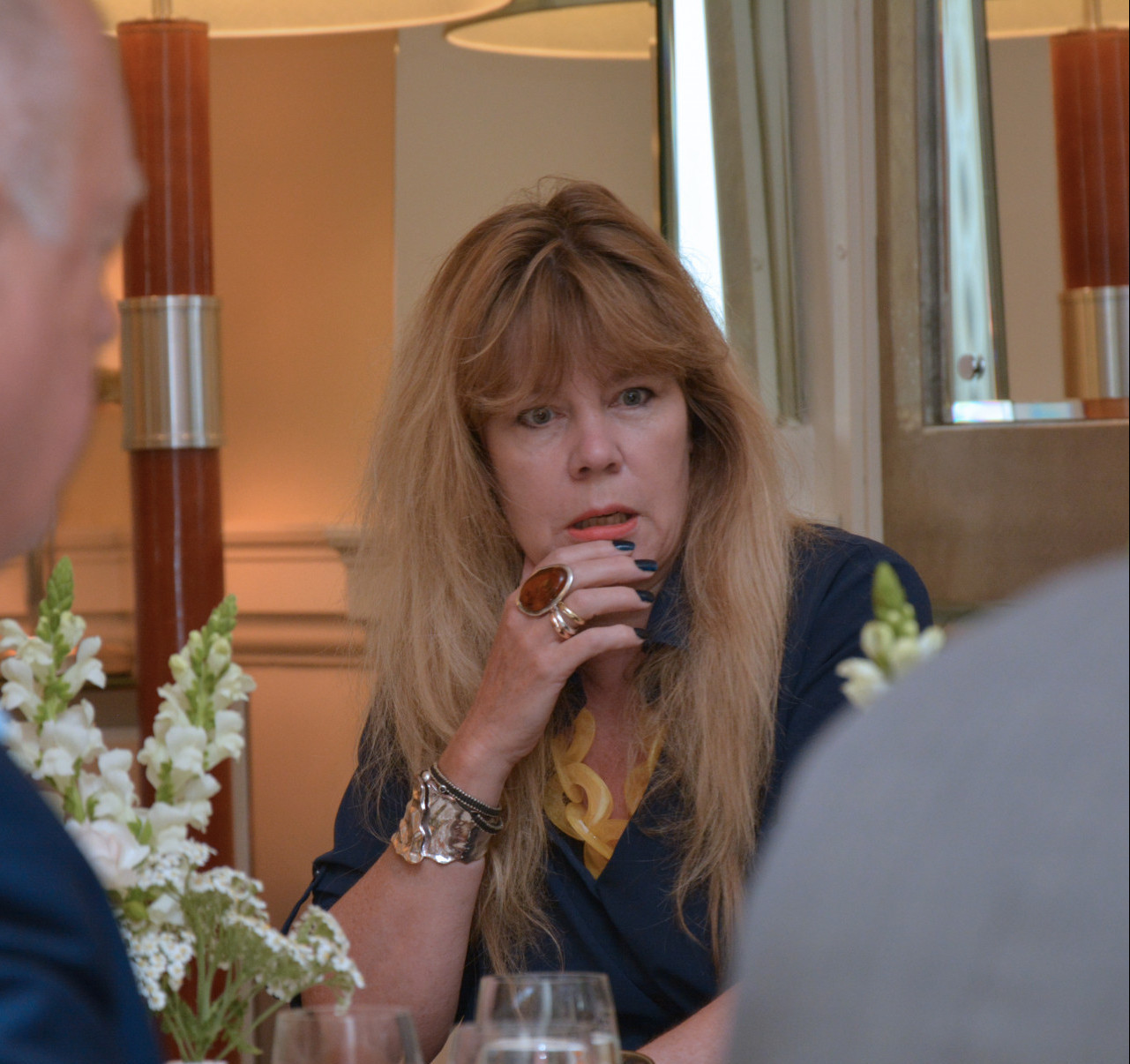
Tracy
For us, it’s probably around the retail side of things so we’ve always considered Mayfair, Oxford Street, the West End to be the shop front of London and if nobody is coming into the West End then we have a problem, so particularly with all the shops shutting in Oxford Street, it is a case of how can we go out there and find new brands? And a lot of those are online brands who maybe want a temporary pop-up presence. We have teams of people around the world so whether it be China, or America or Korea, there are some exciting brands out there that we have access to that some of the landlords don’t so it’s working with all the landlords in the West End to say how can we help you reimagine some of that retail space?
POST-PANDEMIC
Paul
It’s hard to say categorically what’s going to happen in ten years’ time. One of the things I think has happened during the pandemic is there has a been a dialogue and sharing of plans, which has been a catalyst for change.Helen
I think that acceleration of collaboration between the estates and local government and the business owners has been really helpful – things have got done quickly in a way that just felt impossible before the pandemic so I feel really optimistic about that.
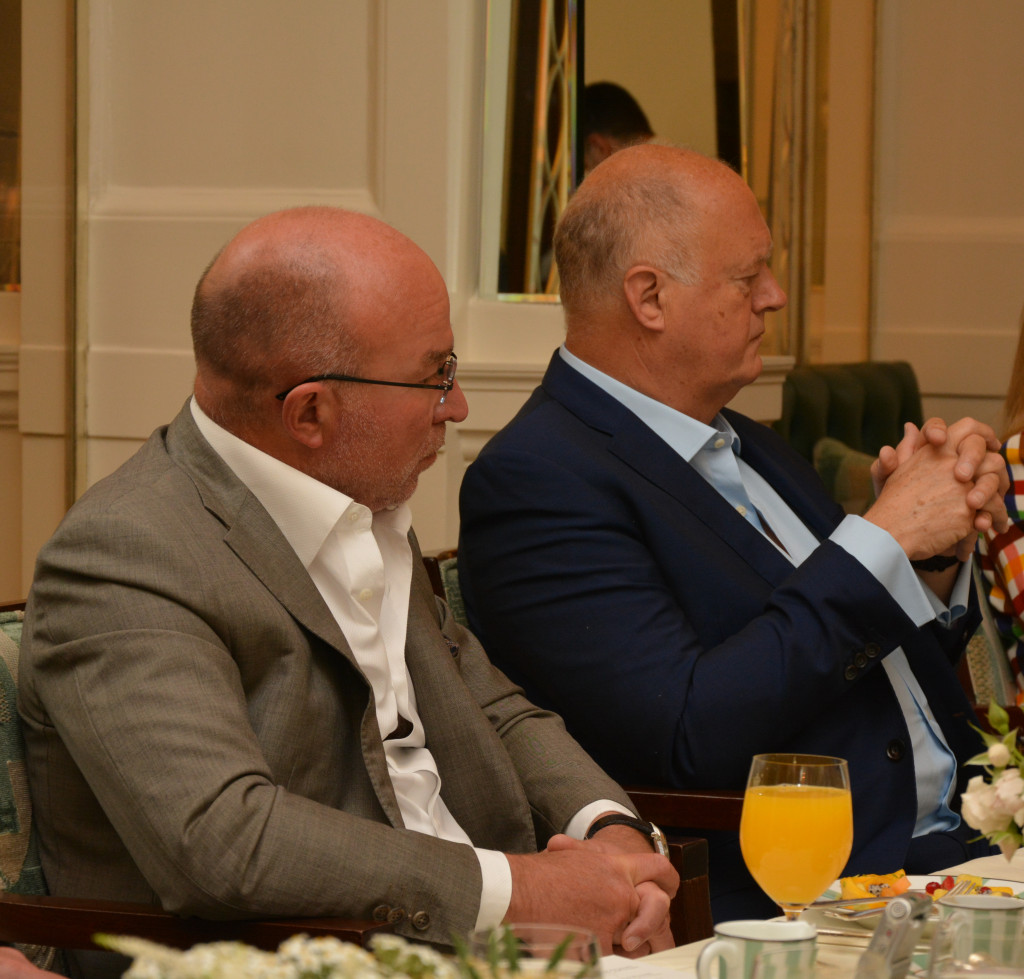
Paul
I think it gave us outside dining, which is important – it’s far more enjoyable to have that mixed use of inside and outside dining.
Harry
The outdoor dining is great fun. In North Audley Street, where we’ve invested in the public realm, we’ve been seeing tremendous trade when the weather has been good. There are things to be done for during the bad weather. But I think everybody has been very positive about the outdoor dining and as long as long as there are places where people genuinely want to go, it can be a very positive thing and we can look to try and establish that in a more permanent way.
Peter
Also, in ten years’ time we are going to have electric vehicles, we are going to be pollution free, so you are going to want to be outside. It’s going to be transformational. I think it [the pandemic] has made us appreciate now what we all just have taken for granted for so long and I think people really want to come back and feel that experience and they miss it and they now realise what Mayfair has got. I think all of us round the table here have got the insight to what’s happening at the moment in Mayfair – that we are about to go into the Roaring Twenties again. I think we will look back in history and say, wow, that was amazing. The 2020s were one of the most amazing times for Mayfair.
Attendees
Helen Brocklebank, CEO Walpole
Harry Chamberlayne, associate director Mayfair, Grosvenor
Selma Day, editor, Mayfair Times
Adrian Day, publisher, Mayfair Times
Tracy Halliwell, director of Tourism, Conventions & Major Events, London & Partners
Liam Hennessy, architect
Paul Jackson, GM, Claridge’s
David Rosen, senior partner, Pilcher Hershman
Konstantin Sidorov, founder, London Technology Club
Peter Wetherell, founder and chairman, Wetherell






